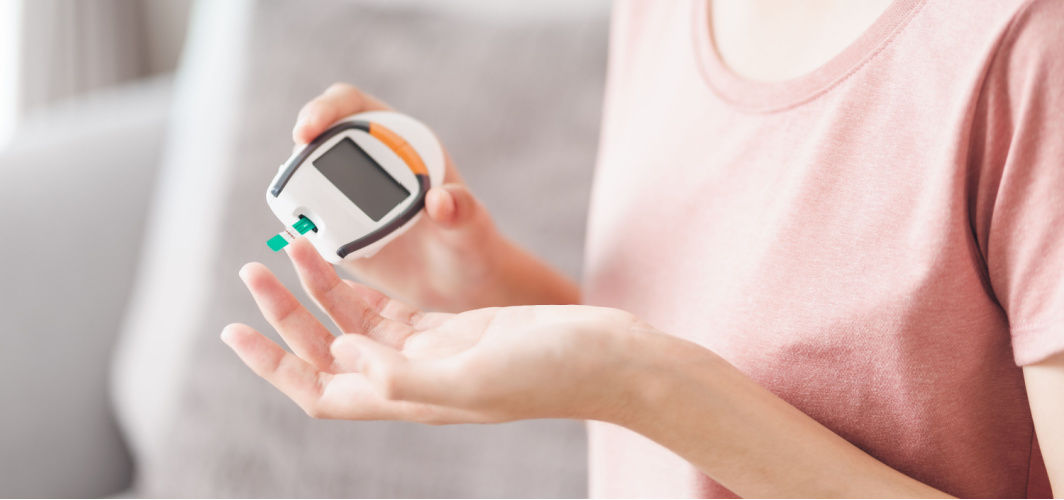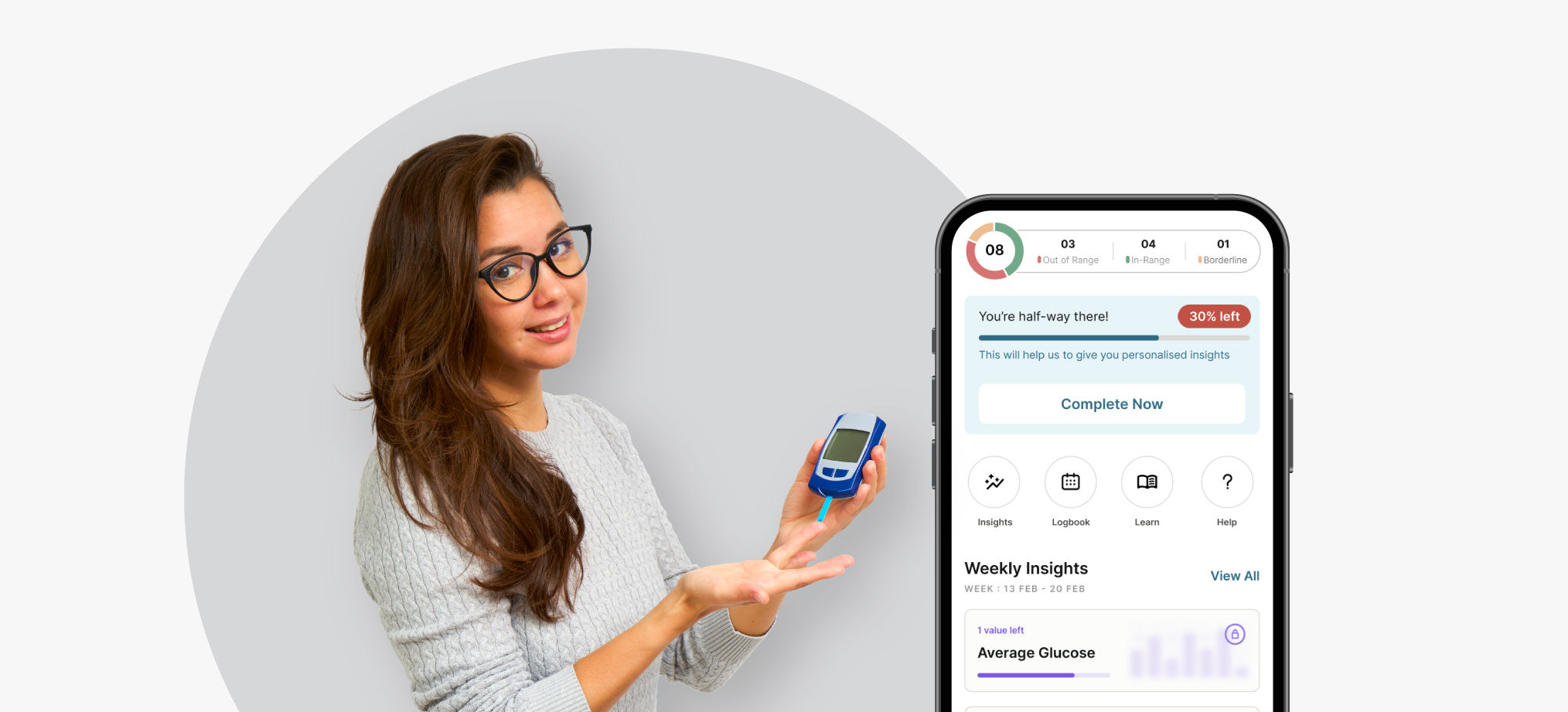Diabetes Management
3 Common Mistakes to Avoid While Blood Sugar Testing
2 min read
By Apollo 24|7, Published on - 13 September 2023, Updated on - 14 September 2023
Share this article
0
0 like

Keeping an eye on your habits, embracing lifestyle adjustments and incorporating regular exercise, are essential steps in mitigating the risk of disease for individuals living with diabetes. The ability to conduct self-blood sugar testing, which helps prevent severe complications and promotes a stress-free life, is important too. Nevertheless, individuals frequently find themselves making errors during this monitoring process. In this blog post, we'll explore three common blood sugar testing mistakes that you must avoid to ensure precise monitoring and the effective management of your health.
1. Pricking the Same Finger Daily
Repeatedly using the same finger for daily blood sugar tests can lead to discomfort or minor injury. To prevent this, you can alternate fingers from either hand when conducting blood sugar level tests.
2. Improper Hand Hygiene
Always begin by washing your hands thoroughly with soap and water, ensuring they are completely dry. Leftover residues from food or other substances on your fingers can contaminate the test strip, leading to inaccurate results.
3. Testing Right After Eating
Testing your blood sugar right after having a meal or a snack might give you a high reading on your glucometer. Testing fasting blood sugar and before eating would likely be more accurate. If you wish to test after eating, it is advisable to wait for two hours after eating.
Conclusion
Maintaining accurate blood sugar testing is pivotal for effective diabetes management. Avoiding these common mistakes will empower you to take better control of your condition and collaborate effectively with your healthcare team to make informed decisions regarding your diet, medication, and lifestyle. You should reach out to your healthcare provider for guidance and support if you have any questions or concerns regarding your blood sugar testing.
Diabetes Management
Consult Top Diabetologists
View AllLeave Comment
Recommended for you

Diabetes Management
Manage Your Diabetes Like A Pro With Apollo 24|7's 12-Week EMPOWER Programme
Diabetes is one of the most common and widespread lifestyle diseases, affecting millions of people worldwide. Keeping the condition under control is a very challenging task. The Diabetes Management Programme by Apollo 24|7 can help you learn how to manage your condition on your own. Read on to learn how.

Diabetes Management
Why good sleep is necessary to keep lifestyle diseases at bay
Good sleep plays a crucial role in preventing lifestyle diseases. Lack of sleep disrupts the hormonal balance that regulates appetite and energy metabolism, leading to increased calorie consumption and weight gain. Inadequate sleep can impair glucose metabolism and insulin regulation, increasing the risk of type 2 diabetes.

Diabetes Management
Consuming Over 6 Teaspoons Of Sugar Daily Increases Your Risk For These Diseases
Consuming over 6 teaspoons of sugar daily increases the risk for various diseases. Excessive sugar intake is linked to an increased risk of obesity, type 2 diabetes, and tooth decay. High sugar consumption can also lead to weight gain, insulin resistance, inflammation, and other metabolic disturbances, contributing to the development of these chronic health conditions. It is important to moderate sugar intake for overall health and well-being.
Subscribe
Sign up for our free Health Library Daily Newsletter
Get doctor-approved health tips, news, and more.
Visual Stories

8 Fruits That are Incredibly Healthy for Diabetes
Tap to continue exploring
Recommended for you

Diabetes Management
Manage Your Diabetes Like A Pro With Apollo 24|7's 12-Week EMPOWER Programme
Diabetes is one of the most common and widespread lifestyle diseases, affecting millions of people worldwide. Keeping the condition under control is a very challenging task. The Diabetes Management Programme by Apollo 24|7 can help you learn how to manage your condition on your own. Read on to learn how.

Diabetes Management
Why good sleep is necessary to keep lifestyle diseases at bay
Good sleep plays a crucial role in preventing lifestyle diseases. Lack of sleep disrupts the hormonal balance that regulates appetite and energy metabolism, leading to increased calorie consumption and weight gain. Inadequate sleep can impair glucose metabolism and insulin regulation, increasing the risk of type 2 diabetes.

Diabetes Management
Consuming Over 6 Teaspoons Of Sugar Daily Increases Your Risk For These Diseases
Consuming over 6 teaspoons of sugar daily increases the risk for various diseases. Excessive sugar intake is linked to an increased risk of obesity, type 2 diabetes, and tooth decay. High sugar consumption can also lead to weight gain, insulin resistance, inflammation, and other metabolic disturbances, contributing to the development of these chronic health conditions. It is important to moderate sugar intake for overall health and well-being.